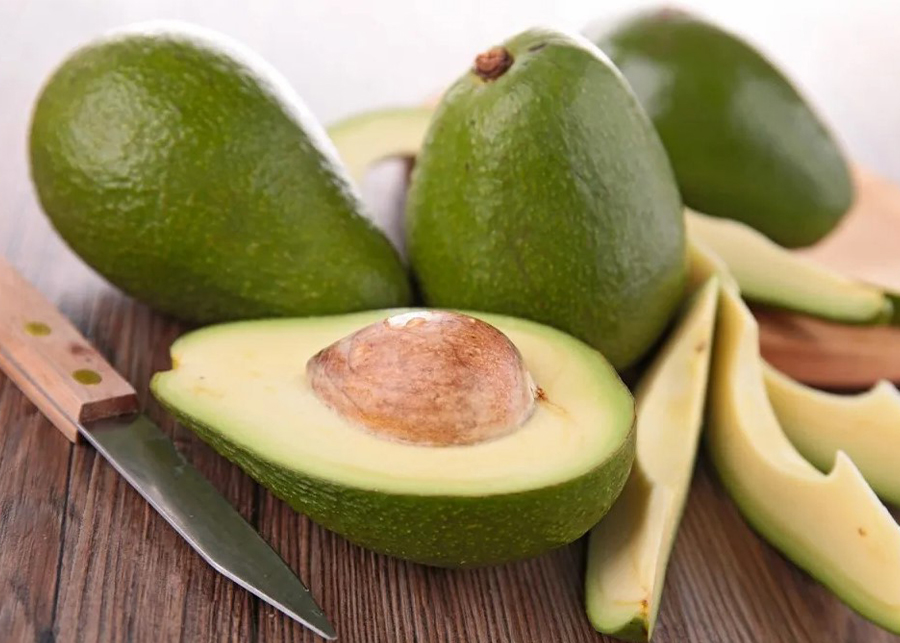You may be asking yourself, “What are the benefits of avocado?” There are many different types of avocado, including a dark-skinned variety. Mexican and Californian avocados are typically higher in calories and fat than Florida-grown avocados, which are generally smaller and less fatty.
There are many different types of avocado, including a dark-skinned variety. Mexican and Californian avocados are typically higher in calories and fat than Florida-grown avocados, which are generally smaller and less fatty. Avocados are excellent sources of monounsaturated fatty acids, which can reduce cholesterol and help lower your risk of heart disease. These benefits are only the tip of the iceberg. Let’s explore a few of the more popular types.

Healthy fats reduce risk of heart attack
There is now evidence that the healthy fats in avocados may lower your risk of developing heart disease. In a recent study, researchers at Penn State University found that the use of avocados as a substitute for processed foods can reduce the risk of cardiovascular disease (CVD).
However, the study was not conducted with patients, and results may vary. Some bioactive compounds found in avocados may differ depending on the ripeness and variety of avocados.
Promote weight loss
Aside from being high in monounsaturated fatty acids, avocados are also packed with satiety- promoting compounds. These nutrients influence how your body uses glucose, and they also help regulate the production of a hormone called adiponectin. This hormone is linked to fat and glucose levels, so a diet high in avocados can help you lose weight while boosting your metabolism. In addition, a regular avocado consumption will keep your body’s insulin resistance at bay.
Lower cholesterol
In addition to being a healthy source of monounsaturated fat, avocados are also high in fiber, antioxidants, and vitamins. A recent study found that people who ate avocados on a daily basis had lower cholesterol levels than those who did not. Avocados contain compounds that block cholesterol absorption. These compounds may be responsible for lower cholesterol levels.
Avocados are easy to include in a daily diet. You can learn more about how avocados can lower cholesterol by reading on.
Lower risk of stroke
Eating avocado may help you lower your risk of heart attack. The avocado can help lower your risk of cardiovascular disease by about 21% when compared to eating fatty foods. According to a study published in the Journal of the American Heart Association, eating avocados can reduce your risk of heart attack by nearly 21 percent. Eating half an avocado each day can reduce your risk by about 17 percent. Besides reducing your risk of cardiovascular disease, avocados also improve your brain health and can help you focus better on tasks that you enjoy.
Lower risk of Parkinson’s
Research shows that the Mediterranean diet is associated with a decreased risk of Parkinson’s
disease. Eating a Mediterranean-style diet can cut the risk of developing Parkinson’s disease by 14 to 48 percent. Avocado benefits include reduced inflammation, which can slow the progression of Parkinson’s disease. Avocados are a great source of dietary fiber, which may also help protect the brain. They contain anthocyanins, a nutrient with antioxidant and anti- inflammatory effects. It is believed that anthocyanins may also have neuroprotective effects.

Reduce risk of macular degeneration
Avocado benefits include reduced risk of macular degeneration. Its high content of vitamin A and lutein can protect your vision from night blindness and dry eyes. Also, it contains omega-3 fatty acids, which are beneficial for healthy eyes. Additionally, you can consume avocados to prevent macular degeneration by eating a variety of fruits and vegetables. They are also rich in vitamin
E. If you want to enjoy the many benefits of avocado, make sure to read the nutrition label to find out which ones are best for you.
Improve vision
The nutritional value of avocados cannot be overstated. Avocados are chock-full of antioxidants and nutrients that are great for our eyes. While you should eat a variety of fruits and vegetables, you should eat a moderate amount of avocado. Avocados are one of the few fruits that contain 20 essential vitamins and minerals. In addition to improving eye sight, avocados can help prevent and treat serious eye conditions.
F.A.Q
What happens if you eat avocados daily?
If you are looking for a way to add more fiber to your daily diet, then adding avocados to things that you eat will be the answer. Not only is the fiber from avocados good for digestion and a healthy heart, but it is also fiber that won’t make you feel sick. If you are looking for something that tastes great and is good for you then avocados may be just what the doctor ordered!



